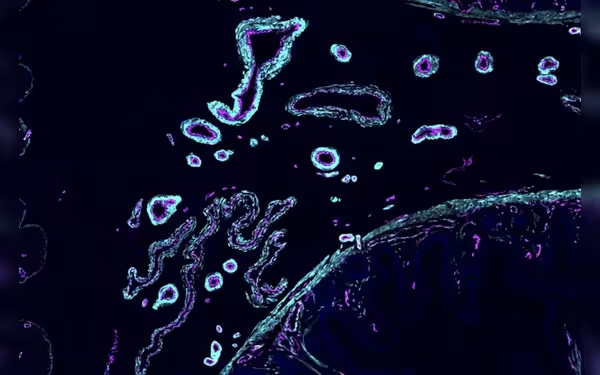Wednesday, December 4, 2024 06:46 PM
Human Cell Atlas Project Maps Body's Trillions of Cells
- Researchers map 37.2 trillion human cells.
- New atlas aids cancer research and treatment.
- Future atlases will explore specific body regions.
 Image Credits: thefrontierpost
Image Credits: thefrontierpostResearchers create a groundbreaking atlas mapping 37.2 trillion human cells, enhancing cancer research and medical advancements.
In a groundbreaking development, researchers have embarked on an ambitious project to map the human body, focusing on its estimated 37.2 trillion cells. Each type of cell plays a unique role in maintaining our health, and understanding these roles is crucial for scientists aiming to tackle diseases, including cancer. This early map is a significant step forward in the field of biology, as it provides insights into how our cells function and interact.
The research team concentrated on specific organs, including the mouth, stomach, and intestines. They meticulously plotted the functions of various cells, as well as how these cells group together to form tissues. Additionally, they examined the locations of these cells within the body and how they evolve over time. The ultimate goal of this high-resolution, open-access atlas, which is considered a first draft, is to aid researchers in combating diseases that can harm or alter human cells.
Aviv Regev, co-chair of the Human Cell Atlas consortium, emphasized the importance of this research, stating, "When things go wrong, they go wrong with our cells first and foremost." The findings from this study were published in the prestigious journal Nature and its related publications. The research group has plans to release a more comprehensive atlas in 2026, which will include detailed profiles of cells across 18 organs and body systems, such as the skin, heart, and breasts.
Dr. Timothy Chan, a cancer expert at the Cleveland Clinic, highlighted the significance of the current cell map. He noted that it not only identifies the various types of human cells but also illustrates the relationships between them. Chan remarked, "This is going to be a boon for cancer research," as different cell types possess unique vulnerabilities, or "Achilles’ heels," that can be targeted for treatment.
Moreover, scientists are developing additional atlases to deepen their understanding of health and disease in specific body regions. For instance, brain atlases aim to uncover the structure, location, and function of the diverse types of brain cells. Similarly, a new gut microbiome atlas is being created to study the collection of microorganisms in the intestines, which play a vital role in digestion and immune system health.
This pioneering research not only enhances our understanding of human biology but also opens new avenues for medical advancements. As scientists continue to explore the intricate world of cells, the potential for breakthroughs in disease prevention and treatment becomes increasingly promising. The journey to fully map the human body is just beginning, and the implications for health and medicine are boundless.













